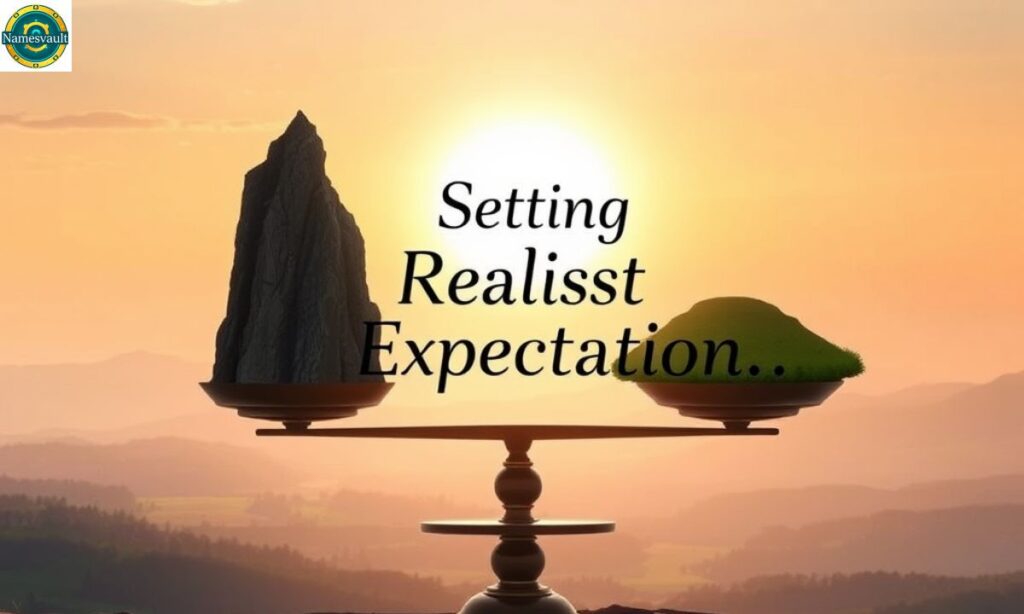Life often moves at a fast pace, and we forget to appreciate what we already have. We’re always chasing what’s next, never fully embracing the present. But true happiness comes from loving the moment you’re in.
Gratitude shifts your focus from what’s missing to what’s here. The more we appreciate today, the less fear has a hold on us. Take a moment to love what you have before life reminds you of its value.
Understanding Fear and Its Impact
Fear is a natural part of life. It’s meant to protect us from harm. But too much fear can become a problem. It can stop us from growing. Fear keeps us from fully living.
When fear becomes constant, it affects our mental health. We feel anxious and unsure. It can hold us back from taking risks. It might stop us from reaching goals. Fear limits potential.
Fear often hides behind excuses. We might say “not now” or “maybe later.” But the real reason is fear. Once we face it, we grow. Courage begins where fear ends.
Common Fears and Solutions
| Type of Fear | Effect on Life | Helpful Action |
| Fear of Failure | Stops progress | Take small, safe steps |
| Fear of Rejection | Hurts self-esteem | Build self-love daily |
| Fear of Change | Causes resistance | Focus on the benefits |
| Fear of the Unknown | Triggers anxiety | Stay present, breathe |
Key Points:
- Fear is natural but can take control
- It limits growth and relationships
- Facing fear is the start of freedom
“Love What You Have” as an Antidote to Fear
Gratitude changes how we think. When we focus on what we have, fear loses strength. We stop needing more to feel safe. Appreciation brings peace.
The present moment is powerful. Worry fades when we stay here. The past is gone. The future isn’t real yet. Now is all we have.
Gratitude builds inner strength. It helps us handle tough times. It reminds us we already have enough. Loving what’s here makes us stronger.
Key Points:
- Gratitude replaces fear with calm
- Focusing on now reduces anxiety
- Loving the present brings confidence
Embracing Gratitude in the Present
Gratitude helps us appreciate what we already have. It shifts our focus from what’s missing to what’s here. This mindset brings peace and happiness. Being thankful reduces stress and boosts positivity. It’s a daily habit that improves mental well-being.
Living in the present with gratitude increases awareness. We start to see the beauty in simple things. The sunrise, a smile, or a kind word can lift our mood. Gratitude helps us slow down and enjoy now. It trains the mind to find joy in every moment.
Gratitude also strengthens relationships. When we thank others, we build connection. People feel valued and seen. This creates more trust and support. Gratitude makes our bonds deeper and more genuine.
The Power of Now
The present is the only moment we truly have. Living in the now helps reduce anxiety. The future is unknown, and the past is over. Focusing on now brings clarity and peace. The present is where real life happens.
Being present improves how we think and feel. We’re more focused and productive. We’re less distracted by regrets or worries. Living now increases calm and creativity. It’s where our best energy lives.
Mindfulness brings us back to now. With practice, we become aware of thoughts and emotions. We learn to accept rather than react. The power of now is in letting go and showing up.
Letting Go of Expectations
Expectations often create disappointment. We imagine how things should be. When life doesn’t match, we feel unhappy. Letting go frees us from constant comparison.
Accepting what is helps us grow. We stop fighting reality and start learning from it. It builds emotional strength and calm. Letting go brings peace and clarity.
Low expectations make room for joy. Surprises feel better when we expect less. We begin to enjoy the journey, not just the outcome. Freedom lives in releasing control.
Developing Long-Term Contentment
Contentment is not based on external things. It’s a state of mind we build over time. Lasting joy comes from inside, not from stuff. Contentment means appreciating life as it is.
When we’re content, we stop chasing more. We focus on values and meaning. We care less about trends and opinions. Inner peace grows from deep acceptance.
Contentment helps us stay grounded. We enjoy life without needing to impress others. We stop comparing and start living. It’s the foundation for a happy, simple life.
The Importance of Setting Realistic Expectations
Realistic goals keep us balanced. When goals match reality, we feel successful. Overly high expectations lead to stress and burnout.
Setting achievable goals helps build confidence. Each success motivates us more. We stay committed without feeling overwhelmed. Progress grows with small, steady steps.

Clear, realistic expectations reduce disappointment. They help us adjust when plans change. We feel more flexible and strong. Balanced thinking leads to healthier emotions.
How to Deal With Difficult Times
Tough times are part of life. Everyone faces loss, pain, or setbacks. It’s normal to struggle. Acceptance is the first step to healing.
Gratitude can help during hard times. It reminds us of what still works. A friend, a breath, or a memory can offer strength. Even small positives matter.
Support systems are key. Talking to others helps release emotion. We’re reminded we’re not alone. Healing grows when we feel connected.
Fostering Resilience Through Gratitude
Resilience is our ability to bounce back. It’s built through challenges and mindset. Gratitude helps us find meaning in struggle.
When we focus on what we have, we feel stronger. Gratitude builds hope. It reminds us of what matters most. Strength comes from appreciation.
Resilient people choose gratitude over bitterness. They reflect, grow, and keep moving. They look for lessons, not just losses. Gratitude fuels emotional recovery.
Gratitude vs. Bitterness in Tough Times
| Attitude | Focuses On | Outcome |
| Gratitude | What’s still good | Peace, perspective |
| Bitterness | What’s missing | Anger, blame |
| Acceptance | What can be learned | Growth, healing |
Mindfulness: A Tool for Living in the Present
Mindfulness means paying attention on purpose. It helps us stay grounded. We observe without judging. This presence helps reduce stress.
When we’re mindful, we respond calmly. We slow down and think clearly. We’re not lost in thoughts or fears. It makes space for peace.
Mindfulness builds awareness of patterns. We see what triggers us and why. This gives us more control. Change begins with noticing.
Practical Ways to Cultivate a Gratitude Mindset
Start small. Write down three things you’re thankful for each day. They can be simple. Over time, your brain will notice more. Daily practice builds the habit.
Say thank you often. Thank people in your life, in person or through messages. This strengthens relationships and boosts joy. Gratitude grows when shared.
Use reminders. Place sticky notes or alarms to pause and reflect. Stay aware of your blessings. Visual cues reinforce gratitude.
- Gratitude improves mental and emotional health
- Living in the present reduces stress and regret
- Letting go of expectations increases peace
- Contentment comes from inner values
- Realistic goals reduce burnout
- Gratitude helps during hard times
- Resilience grows from appreciation
- Mindfulness brings calm and clarity
- Daily gratitude practice rewires the brain
FAQ’s
What does it mean to love what you have?
It means being thankful for your current life, without waiting for something better.
How can gratitude help reduce fear?
Gratitude shifts focus from what’s lacking to what’s working, reducing fear and stress.
Why do people take life for granted?
We often assume we’ll always have time. Busyness blinds us to what truly matters.
Can I learn to appreciate more even during hard times?
Yes. Even in pain, small blessings exist. Gratitude is a mindset, not a condition.
What’s one simple way to stay present every day?
Pause, breathe, and name three things you’re grateful for in that moment.
Conclusion
Embracing gratitude transforms the way we live. When we appreciate what we have, we shift from fear to peace. Living in the present allows us to see the blessings around us, no matter how small.
Fear loses its grip when we focus on gratitude, making us more resilient. The present moment is all we truly own, so it’s crucial to cherish it. Love what you have now, and life will feel richer and more fulfilling.

Hayat is a skilled content writer and SEO expert with 5 years of experience, specializing in digital marketing, SEO strategies, and content creation for various platforms.


![450+ Badass Panther Names [Fierce, Mystical & Unique Ideas] 450+ Badass Panther Names [Fierce, Mystical & Unique Ideas]](https://namesvault.info/wp-content/uploads/2025/02/450-Badass-Panther-Names-Fierce-Mystical-Unique-Ideas-150x150.jpg)
![600+ Cute & Catchy Pigeon Names [Perfect Ideas for Your Flocks] 600+ Cute & Catchy Pigeon Names [Perfect Ideas for Your Flocks]](https://namesvault.info/wp-content/uploads/2025/02/600-Cute-Catchy-Pigeon-Names-Perfect-Ideas-for-Your-Flocks-150x150.jpg)

